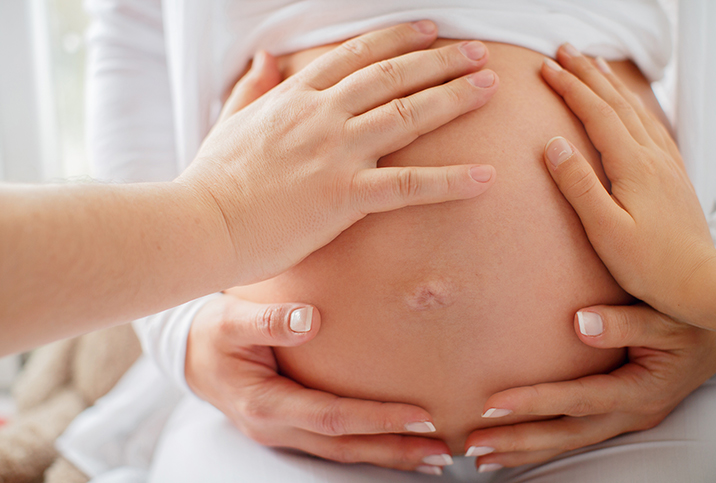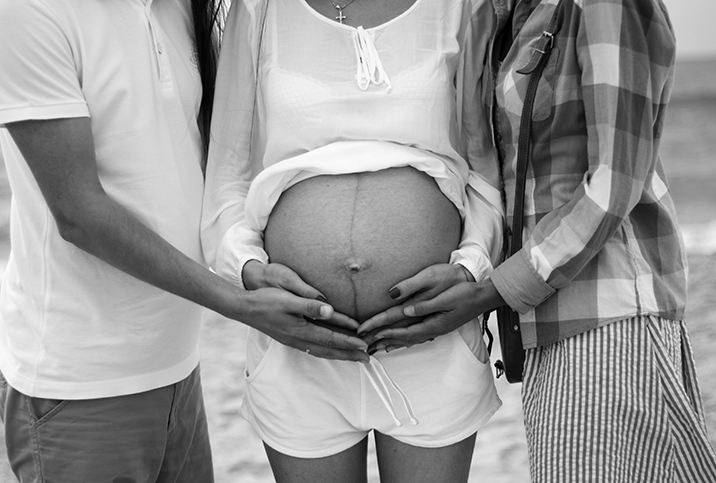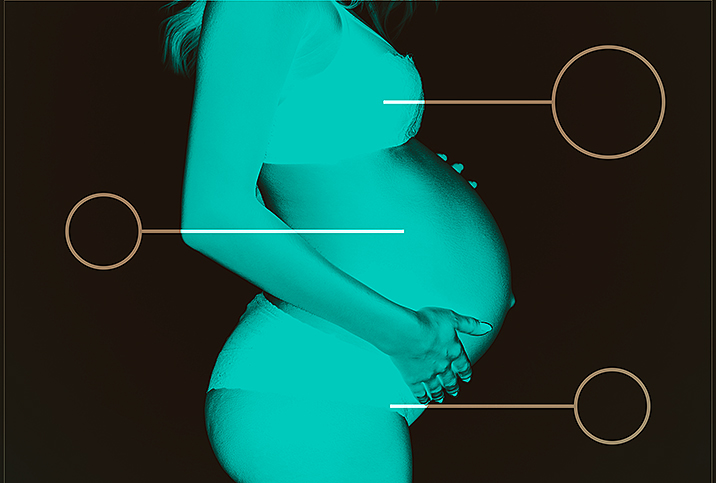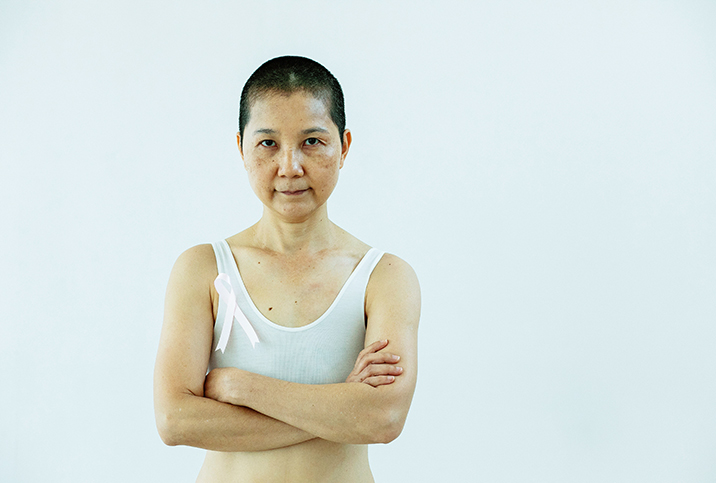My Surrogate Helped Me Move On With My Life After Breast Cancer

I was 12 years old the first time I heard about surrogacy.
My younger sister and I snuck downstairs—when we were supposed to be in bed—to investigate what our worldly teenage babysitter was watching. It was the '80s, and my parents refused to get cable, but we knew Saturday nights always featured a salacious made-for-TV movie or mini-series on one of the four channels brought to us by our rabbit-ear television antenna.
The movie that night was about a couple who hired a woman to carry their baby because they couldn't have kids. I was a bit confused about the logistics, but I got the general gist. Several years later, Phoebe's storyline on "Friends"—when she acts as a surrogate for her brother and his wife—filled in many of the gaps in my understanding.
This was still in the era before "Dr. Google," and television remained a primary source of my non-mainstream education. So I carefully filed this baby-making option away, a possible path for having a family if down the road I couldn't get pregnant myself.
At the time, I was quite certain that if I were to eventually pursue surrogacy, the person would have to be someone I knew.
After my husband and I got married, we waited a few years to start a family. We'd just moved to Canada and I was working on my career as an actor and writer. We even froze embryos because we were both approaching 40 and thought it was wise to have a backup plan.
Then, at 39, with my biological clock blaring, we got pregnant. I couldn't believe how much I enjoyed being pregnant. I worked out every day with an infomercial host level of energy. It was truly one of the most amazing experiences of my life.
My husband and I wanted a second child, but at that time I needed to just get through the first few months of new motherhood. Sure, my childbearing years were winding down, but I was super healthy and in my heart, I trusted we still had more time.
Little did I know, sleepless nights weren't the only thing that first year would bring.
And that's when I saw it: a raised spot in the upper right area of my chest, shaped like a piece of cauliflower, hiding under my skin.
Standing in front of a hotel bathroom mirror on my first trip away from my now nine-and-a-half-month-old son, I took a moment to examine my deflated A-cups. I'd just stopped breastfeeding and was missing my more buxom B-sized chest.
And that's when I saw it: a raised spot in the upper right area of my chest, shaped like a piece of cauliflower, hiding under my skin. That can't be normal? Probably one of the side effects of my milk production winding down, I thought.
Nevertheless, when I got back home I called my doctor and was booked for her next available appointment. I wasn't overly concerned, as breast cancer doesn't run in my family and I expected my doctor to immediately dismiss the bumpy mass as a plugged milk duct or just pregnancy-related changes.
Instead, after examining me, my doctor said, "Sarah, I want you to go and get a mammogram and ultrasound as soon as possible. I don't like the way this feels at all."
Even though it was a holiday weekend, I was seen almost immediately for the tests, which hours later confirmed the worst: breast cancer.
The next few weeks were a blur of more tests, biopsies and doctor appointments. A double mastectomy was scheduled and I was placed into chemical menopause to keep my estrogen-fed breast cancer from coming back.
When I asked my oncologist about getting pregnant again, she was hesitant. "Sure, maybe in a few years we can explore another pregnancy," she replied.
Of course, now having another baby was all I could think about.
Then we remembered our frozen embryos. Because I couldn't carry the baby right now, it made sense to use a surrogate for our second child. My sister offered (bless her), but she was dealing with her own newborn and I was worried about the possibility of my breast cancer being genetic.
I decided we would need to turn to a stranger. But did we even have money for this? How much would it cost?
Luckily, we were living in Canada. Unlike surrogacy in the United States, in Canada, it's illegal to pay someone to carry your baby. You can reimburse them for expenses related to the pregnancy, but outright compensation is against the law.
My husband and I were skeptical we would be able to find someone who would do this altruistically, but then I met Rose in a Facebook group for Canadian surrogates and intended parents. She'd been a surrogate before and was thinking about doing it one more time if she met the right couple.
But even more remarkable was how much her friendship helped me stay present.
We immediately clicked—our birthdays even fall in the same month, a day apart. If I couldn't carry my baby myself, this was the woman who should.
And while I loved being pregnant with our first baby, I loved going through this journey with Rose just as much. We texted at all hours of the day and I never missed an ultrasound appointment, even if just flying in for the day to attend. We held hands watching the screen and got emotional each time we heard the baby's heartbeat.
But even more remarkable was how much her friendship helped me stay present.
We met a year after my original breast cancer diagnosis, and I never hid any of my fears from her. We talked about recurrence and how scared I was before every breast cancer follow-up test or scan. She was a mother with three incredible kids of her own, and going through this with her made me appreciate and focus on all the little moments more.
It's hard not to be angry when diagnosed with breast cancer, but it was because of breast cancer that Rose came into my life. She's forever a member of our family, a godmother to our second son, whom she carried. And even though COVID has prevented us from traveling to see each other these last couple of years, we are always there for one another.


















